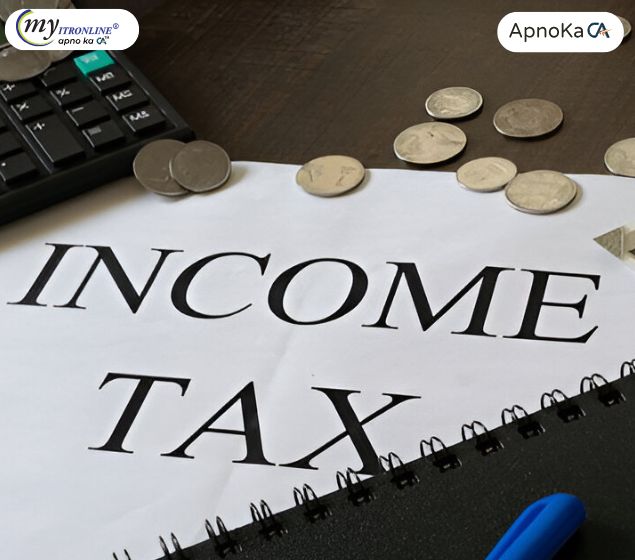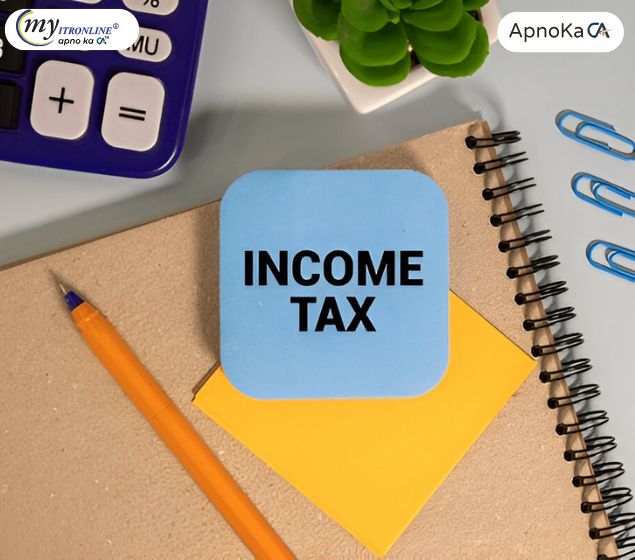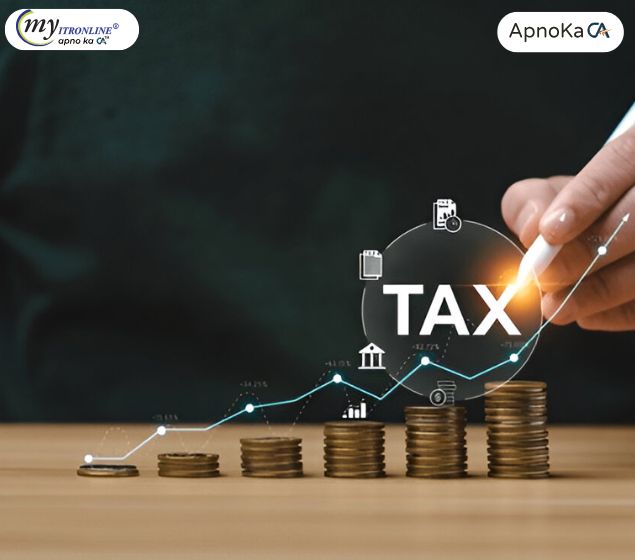# 2024
12 posts in `2024` tag
.jpg)
The New Tax Regime Advantage? Standard Deduction Changes for FY 2024-25 Explained
Grasping the concept of standard deduction is essential for every salaried person in India. Following the recent updates in the Union Budget 2024, the framework for standard deduction has changed, particularly within the new tax framework. This comprehensive guide clarifies what standard deduction entails, the updated limits for both regimes, eligibility criteria, advantages, and practical illustrations.

Understanding 44AA, 44AB, 44AD, 44ADA for the Upcoming AY 2025-26
This post offers an in-depth overview of key Income Tax Act sections (44AA, 44AB, 44AD, 44ADA) applicable for AY 2025-26 (FY 2024-25). It details the requirements for maintaining accounting records and mandatory tax audits based on income/turnover thresholds. It also explains the presumptive taxation schemes for eligible small businesses (44AD) and professionals (44ADA), including updated limits and the implications of opting for or out of these schemes. The guide aims to clarify compliance duties for taxpayers

AY 2025-26: Top 28+ Income Tax Return Errors and How to Avoid Them
Filing your Income Tax Return (ITR) for AY 2025-26? Avoid the 28+ most common mistakes that can lead to notices, penalties, or delayed refunds. This comprehensive guide covers identity, income reporting, deduction, procedural, and verification errors, plus new regime selection tips. Stay updated, file accurately, and ensure a smooth tax season!

CBDT Notifies ITR Forms 1-7 for AY 2025-26 (FY 2024-25): What Taxpayers Need to Know
The CBDT has notified the ITR forms (1-7) for AY 2025-26, incorporating changes from the Finance Act, 2024. This blog provides a comprehensive overview of the key modifications in each form, focusing on changes in capital gains reporting, eligibility criteria, deduction disclosures, and other compliance requirements to help taxpayers prepare for the upcoming filing season.
.jpg)
CBDT Notifies ITR Form 2 Early for AY 2025-26 | Start Your Tax Prep!
The Central Board of Direct Taxes (CBDT) has notified ITR Form 2 for Assessment Year 2025-26 through Notification No. 43/2025 dated May 5, 2025. This early release benefits individuals and HUFs without business/professional income but potentially having capital gains, foreign assets, multiple house properties, or income over ₹50 lakh (₹50 lakh), allowing more time for preparation. The blog explains who should file ITR-2, highlights the significance of early notification for taxpayers and professionals, discusses potential areas of change (like capital gains reporting), and outlines actionable next steps for taxpayers to begin their FY 2024-25 tax filing preparations.

Attention Firms & LLPs: CBDT Releases ITR-5 Form for AY 2025-26 Filing.
The CBDT has released the updated ITR-Form 5 for Assessment Year 2025-26 (applicable to FY 2024-25) via Notification No. 42/2025 dated May 3, 2025. This blog post details who needs to file ITR-5, discusses anticipated key changes aligning with recent amendments and enhanced disclosure norms, outlines implications for taxpayers like Firms and LLPs, and provides actionable steps for compliance.

India Capital Gains Tax FY 2024-25: Shares & Mutual Fund STCG/LTCG Rates
This post details the taxation rules for capital gains from shares and equity mutual funds in India for FY 2024-25 (AY 2025-26). It explains the crucial changes effective July 23, 2024, including updated STCG and LTCG tax rates, revised exemption limits, holding period classifications, dividend taxation, and reporting requirements in ITR forms.

ITR-3 AY 2025-26 Key Changes: CBDT Notification & Updates Guide
CBDT has notified ITR-Form 3 for Assessment Year 2025-26 (FY 2024-25) via Notification No. 41/2025. This affects Individuals/HUFs with business/professional income. Key updates include a split Capital Gains schedule (pre/post July 23, 2024), new conditions for claiming share buyback loss (post Oct 1, 2024), an increased asset/liability reporting threshold to ₹1 crore, addition of Sec 44BBC reference, enhanced reporting for deductions like 80C & 10(13A), and mandatory TDS section code reporting. Taxpayers should review these changes for compliant filing.

Tax Season Starts Early: ITR-1 (Sahaj) & ITR-4 (Sugam) Notified for AY 2025-26!
The blog post announces the early notification of ITR-1 (Sahaj) and ITR-4 (Sugam) forms by the CBDT for the Assessment Year 2025-26 (corresponding to Financial Year 2024-25). It details the eligibility criteria for using these forms, explains the significance of the early notification for taxpayers (more preparation time, potentially earlier filing utility release), clarifies the difference between form notification and utility release, reminds readers about the AY/FY distinction, and advises taxpayers to start gathering necessary documents while waiting for the official filing utilities to be launched on the Income Tax portal.

Don't Miss the Deadline: Vivad se Vishwas 2024 Ends April 30, 2025!
This blog post details the recently announced final deadline of April 30, 2025, for filing declarations under the Direct Tax Vivad se Vishwas Scheme, 2024 (VSV 2.0). It explains the scheme's purpose, eligibility criteria (including the expansion for certain cases), key benefits like waiver of interest/penalty, the procedural steps involving Forms 1-4, and urges eligible taxpayers to act before the deadline to resolve pending direct tax disputes.

India's New 1% TCS Rule: What Buyers & Sellers of Luxury Goods Over 10 Lakh Must Know
This post details India's new 1% Tax Collected at Source (TCS) regulation, effective April 22, 2025, under Section 206C(1F). It applies to specific luxury goods (watches, art, yachts, etc.) when the sale value exceeds ₹10 lakh. The article explains the TCS mechanism, lists affected items, clarifies calculation, outlines buyer and seller responsibilities, differentiates it from Section 206C(1H), and highlights that the TCS paid is adjustable against the buyer's income tax liability.

Shares, MF & Property Capital Gains: Reporting Guide for ITR AY 2025-26 (New Rules)
This blog post details how to report capital gains from shares, mutual funds, and property in the Income Tax Return (ITR) for Assessment Year 2025-26 (Financial Year 2024-25). It explains the classification of gains (STCG/LTCG), calculation methods considering grandfathering, the significant impact of the Finance (No.2) Act 2024 changes effective July 23, 2024 (including curtailed indexation and revised tax rates), set-off rules, and specific ITR schedules (like CG and 112A). It also covers capital gains exemptions and emphasizes reconciliation with AIS/TIS.
